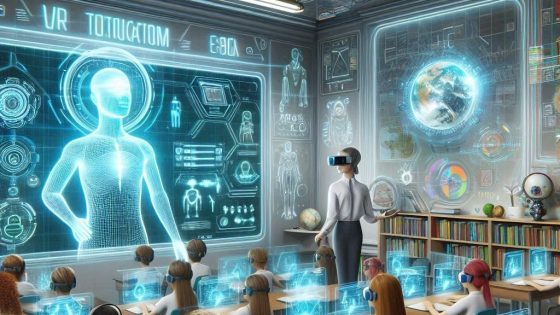India’s higher education landscape is rapidly integrating the latest technologies to deliver high-quality education in the digital world. Nowadays, transformative technologies such as AI and VR are becoming integral to classrooms. The importance is also reflected in a report titled “Revolutionising Classrooms: The Impact of Generative AI on the Future of Education,” which revealed that 63.61 percent of educators believe AI is crucial for preparing students for an AI-dominated future.
At this juncture, higher education institutions, including the country’s leading universities, are prioritising training and upskilling methods to not only help their teachers become tech-savvy in digital education.
Dr. Jones Mathew, Principal of Great Lakes Institute of Management, Gurgaon, discusses the rapid rate of technological change in education and how the skills required by organisations have completely transformed.
“Traditional industries that previously had no emphasis on technology have had to pivot to remain relevant. Initially, this transformation involved the adoption of digital media. Now, the transformation is evident in the widespread use of even more advanced technologies such as LLM platforms, Machine Learning, Deep Learning, Natural Language Processing, Artificial Intelligence, Big Data and Cloud Analytics, and Prompt Engineering, amongst other future-ready tools and skills,” he explains.
Adding to this, Mangesh Bedekar, Dean of the School of Computer Science and Engineering at MIT-World Peace University, Pune, shares that the institution is integrating advanced technologies that not only enable teachers to enhance their ability to teach complex subjects through immersive, practical experiences but also make it easier to engage students effectively.
To keep pace with the adoption of digital technologies in teaching, higher education institutions are employing various methodologies, workshops, and faculty development programs to keep teachers at the forefront of tech adoption in education delivery.
For instance, Dr Hemachandran K, Director of the AI Research Centre at Woxsen University, Hyderabad informs that the institution’s AI Research Centre offers workshops, faculty development programs, and certification courses to equip faculty with skills in digital learning, particularly in generative AI tools, AR, VR, and platforms like Woxsenverse, a metaverse for immersive education.
STRATEGIES TO EFFICIENTLY AND ETHICALLY USE GEN-A- TOOLS
In the current era, when generative AI tools like ChatGPT present both challenges and opportunities in higher education, institutions and B-schools are implementing various strategies for the efficient and ethical use of AI and for delivering high-quality education.
Dr Jones of Great Lakes Institute of Management notes, “Teachers are now using Generative AI to help students research topics and business strategies faster at the foundational level, allowing them to save time. They then facilitate students in creating a second layer of self-developed material over the AI-generated base.”
Additionally, teachers are guiding students on how to leverage Generative AI for better outcomes by refining their search prompts and being conscious of the ethical pitfalls of AI. AI-based case studies as a pedagogical tool are being widely embraced. Teachers are advising students and managers of all age groups to abandon the ‘Human vs AI’ mindset and embrace the ‘Humans with AI’ perspective.”
Regarding the use of Generative AI for faculty, Dr Hemachandran of Woxsen University adds, “We have developed a comprehensive framework to ensure the effective and responsible use of generative AI in education, addressing both student and faculty perspectives. This framework includes a four-scale metric-Full AI, Semi AI, Assisted AI, and No AI-used to evaluate students’ work based on the level of AI involvement.”
“Similarly, faculty members are trained to integrate generative AI into interactive learning models, such as creating personalised content, AI tutors, and immersive virtual classrooms, while also understanding the limitations and ethical considerations of AI usage. This approach ensures balanced, innovative, and responsible AI adoption in education,” she further added.
Mangesh Bedekar of MIT World Peace University says, “With the recent incorporation of Generative AI tools into our courses on Machine Learning (ML) and Natural Language Processing (NLP), faculty members can now guide students in using Large Language Models (LLMs) to tackle real-world problems more efficiently. By integrating these technologies, we are not only improving the educational experience for our students but also enhancing our own well-being. The reduction in manual tasks and the ability to focus more on impactful teaching have provided us with a better work-life balance and a renewed sense of purpose in our roles as educators.”
With the rapid pace of technology adoption in universities, particularly in teaching, institutions are making faculty more technology-savvy and willing to view new-age technology as an enabler, preparing the teachers of tomorrow.
Tune In
Source Agencies




